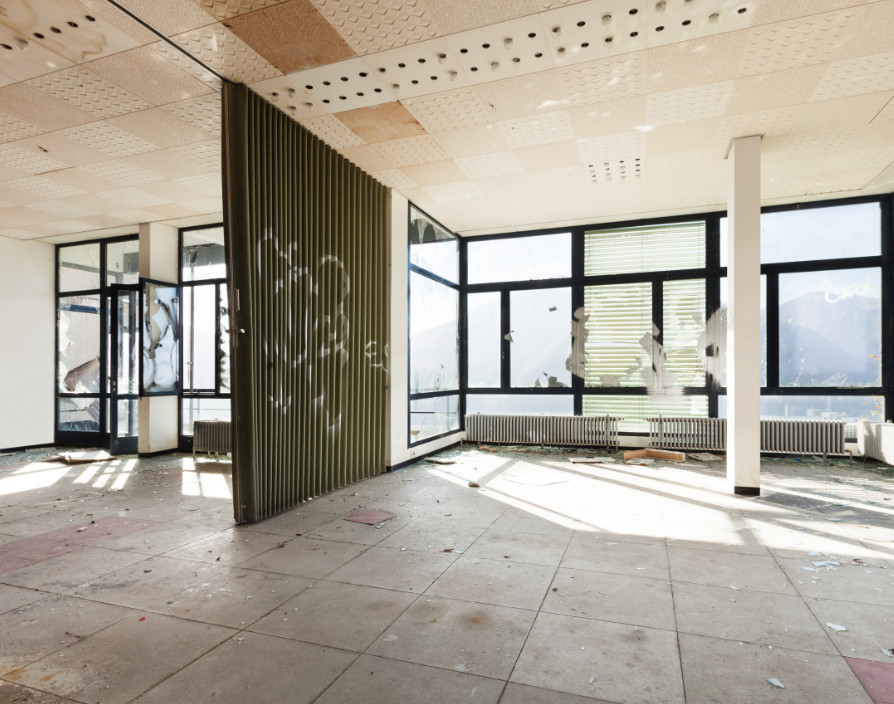In late April, the CEO of Barclays announced that putting 7000 people in a building may be a thing of the past. Then, on May 12, Twitter announced that the majority of its employees are permitted to work from home forever. So, does this mean that the end of the office is upon us? And, if so, what does it mean for us? As you read those statements, some of you are gulping and others are cheering. We know that’s true because we were working recently with a group of clients and asked them to describe how lockdown has been for them. Their responses ranged from nirvana to hell on earth. Similarly, in a recent poll, we asked clients what levels of stress they had experienced during this pandemic on a scale of 1-10. The responses ranged from 1 to 10 and every number in between. Some of you are itching to get back into the office and others are dreading the thought. Some of those who have returned to the office have been disappointed ‘ finding that when not fully staffed or with restrictions and physical distancing still in place, the office environment they remember is a thing of the past.
No matter where you fall on the spectrum, when you consider the real estate savings alone of allowing (or requiring) people to work from home, it seems clear that we will very likely have to deal with a shift in our work environment ‘ and along with that, some uncertainty…not easy for many of us. Human beings generally are not comfortable with uncertainty. In fact, some research suggests that fear of the unknown is the root of all other fears and that our ability to navigate uncertainty is one way to assess how resilient we are. For many people, uncertainty and anxiety are intertwined ‘ the less certain the situation, the more anxiety it tends to create. According to a 2014 study in the journal Nature Reviews Neuroscience, uncertainty disrupts many of the habitual and automatic mental processes that govern routine action. This disruption creates conflict in the brain, and this conflict can lead to a state of both hypervigilance and outsized emotional reactivity to negative experiences or information.
Unfortunately, right now, uncertainty seems to be the order of the day. As the saying goes, adapt or die ‘ and so, we press on through the uncertainty. To help us do that effectively and adapt to what may very well be the end of the office, we need Physical Intelligence.
Right now, hundreds of chemicals, hormones and neurotransmitters, (some with familiar names such as testosterone, cortisol and dopamine), are racing through our bodies and brains in our bloodstream and nervous system. Those chemicals largely dictate how we think, feel, speak and behave. Most of us operate primarily at the mercy of those chemicals ‘ experiencing thoughts, reactions and emotions ‘ without realizing that we can actively manage them. Physical Intelligence is the ability to detect and strategically influence the balance of certain key chemicals through how we breathe, move, think and interact with each other so that we can achieve more, stress less and live and work more happily. While the term Physical Intelligence may not be familiar to you, the techniques have been used for decades, many drawn from the worlds of elite sports and art ‘ and all underpinned by neuroscience.
There are four elements of Physical Intelligence, each important in helping us adapt to the potential end of the office: Strength, Flexibility, Resilience and Endurance. Integrated into those four elements are eight key chemicals that when in balance form the Winning Cocktail for not just surviving but thriving in the face of the office’s demise ‘ regardless of where we sit on the spectrum of loving or despising working in isolation.
Strength: This is all about inner strength, confidence, resolve, appropriate risk taking, acting and speaking wisely and decisively in complex, high risk situations without threatening other or feeling threatened ourselves. Applied to the end of the office, this will give us the inner strength to embrace whatever change is asked of us and/or to advocate for ourselves and others if what is being asked isn’t viable. To build Strength, start with two simple and crucial techniques: posture and breathing. First ground and center yourself ‘ sit or stand with your feet flat on the floor, hip-width apart, straight spine, head balanced on your neck ‘ imagine a string running from the top of your head to the ceiling suspending you. Posture and breathing are intertwined because good posture creates room for your lungs to expand. With good posture in place, practice paced breathing for at least ten minutes daily (doesn’t have to be ten minutes straight) for clarity of thought and to keep cortisol levels under control. Breathe diaphragmatically, in through the nose, out through the mouth with a steady count in and steady count out. In and out counts don’t have to match (e.g., 5 in/7 out or 7 in/7 out). If feeling panicked, aim for a longer out-breath to dispel CO2, which increases cortisol if it builds up in the base of the lungs, (CO2 is heavier than oxygen).
Flexibility: Flexibility refers to collaboration, creativity, innovation, agile thinking, adapting to different communication and behavioural styles and embracing change. The end of the office will, no doubt, require us to not only embrace change but to collaborate differently and generate innovative solutions to the new challenges and opportunities the end of the office will bring. To build Flexibility, start with these techniques:
Generate innovative/creative solutions
A flexible body leads to a flexible mind. Stretch to release ‘hot spots’ where you hold tension.
Twist at the waist 2x/day to release toxins that build up around your organs and increase cortisol.
Spark creativity by walking or looking at beautiful objects in art/nature. We are 45% more likely to have an innovative or creative idea while moving vs. seated.
Strengthen interpersonal relationships and Inspire trust
Crises and extreme change can lead us to be more inwardly-focused. Balancing your agenda with that of others, communicating well and flexing your behavioural style balances oxytocin (social bonding), dopamine (pleasure/need), and testosterone (power/control), and manages cortisol (stress).
Resilience: As you might expect, Resilience is our ability to bounce back from adversity and challenge, to maintain optimism and apply a learning mindset to our experiences. Especially for those for whom lockdown has been a genuine hardship, the end of the office will likely require even more resilience at a time when we are close to the end of our reserves. While the best time to build resilience is before we need it, it is never to late to refill our resilience reserves ‘ using simple things such as meditation, massage, good food, hydration, sunshine ‘ and effectively processing negative events so that we can maintain an optimistic outlook and learn from adversity. Resilience relies upon strong adrenal function, which requires keeping our cortisol levels under control. Oxytocin (our social bonding and trust chemical) is essential for resilience, so it will be very important to stay in touch with your support system, communicate more openly, use more appreciative words, and build trust by being even more considerate of each other than usual. In addition, use this Resilience technique to build resilience now and over the long term:
REST: Block time in your calendar for restorative behaviours by writing the word REST in blocks throughout the week and honor those blocks.
Retreat: Disengage from all media/social media ‘ find mental quiet and rest ‘ your equivalent of the tennis player who sits on the sidelines with a towel over their head between sets; do this daily.
Eat: Eat heathfully ‘ ideally seven days a week ‘ limit sugar and simple carbs, increase fresh vegetables and lean protein with healthy grains in moderation.
Sleep: Research repeatedly tells us that we need 7 hours minimum ‘ seven days a week. Inch up the hours by going to bed earlier or taking power naps. Nothing is more important for your brain function and, along with paced breathing, is crucial for your ability to process and respond to challenge and change.
Treat: The typical treats tend to include sugar and alcohol. Instead, challenge yourself to identify healthy treats, such as reading/watching/listening to something enjoyable, drinking a cup of soothing tea, playing with the children, taking a hot bath, touring a museum online ‘ whatever you would consider a reward, which reboots dopamine levels.
Endurance: Endurance is all about determination, perseverance, and planning. If we need to sustain effort over the long haul or demonstrate extreme patience, we need endurance. Sound familiar? One could argue that we have already being challenged to endure life in isolation. Whatever change is in store for the office as we have known it, it is safe to say that it will likely require some endurance on our part ‘ even if it is just enduring while everyone works out the kinks of our new normal. We think of endurance as being in an Endurance Tunnel. Often as we navigate our way through that tunnel, the walls start to close in on us and that light at the end starts to flicker and grow dim. To keep those walls strong and the light at the end switched on, we need very specific resources: Visualisation, Determination, Motivation and Appreciation. Create a clear vision of where you are headed ‘ picture it in your mind’s eye. Identify the milestones you need to hit to achieve that vision and imagine yourself (and your team, if relevant) achieving each one ‘ firming your muscles and you walk toward each milestone you are visualising. As you reach each milestone (whether visualizing it or actually achieving it), celebrate that success! Recognize that this shift to the end of the office may be a difficult one and pay attention to what you and your colleagues need to keep them going. Cheer each other on. And show appreciation ‘ genuine, heartfelt, specific appreciation ‘ to power everyone forward through that tunnel until you emerge into the light of the new normal.
Regardless of what the future holds ‘ the end of the office, the return to the office, or something in between ‘ one thing is certain…the world around us will continue to change. While we can’t always control the changes that will be imposed upon us, we can control how we react to them. Developing our Physical Intelligence will prepare us to more effectively weather those changes, no matter how uncertain, unanticipated or short/long-lived they may be.
“
Share via:








































